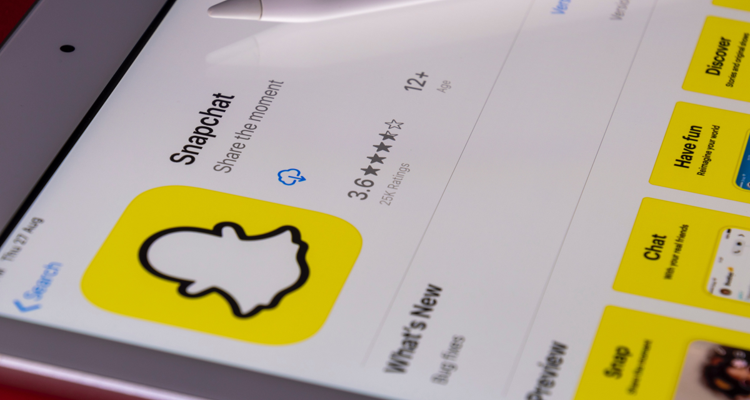Photo Credit: Souvik Banerjee
Snapchat parent Snap has officially inked new licensing deals with Apple-backed UnitedMasters, the Netherlands’ Buma/Stemra, and, having evidently put to rest a legal battle that initiated last year, Switzerland’s SUISA.
Snap (NYSE: SNAP) unveiled its latest licensing tie-ups today, also taking the opportunity to emphasize the perceived music-discovery and promotional benefits associated with the Snapchat Sounds library. As of Q4 2022, Snapchat, which is set to post its Q1 2023 financials on the 27th, boasted 375 million daily active users, according to the appropriate report.
The latter figure reflects an approximately 17 percent improvement from the same period in 2021, and during an investor event in February of this year, it emerged that Snapchat had topped 750 million monthly active users due largely to international growth.
Regarding the UnitedMasters pact, TechCrunch elaborated that a “selection” of the major-label alternative’s catalog will be available to users via Sounds, and up-and-coming acts signed with UnitedMasters will also be eligible to receive grants via the Creator Fund that Snap and DistroKid rolled out in July of 2022.
On the Buma/Stemra side, the Dutch society, which says that it collected some €260 million ($287.29 million at the present exchange rate) during 2022, has partnered with Snap about one month after detailing a decade-long royalty-processing agreement with Salt.
Finally, Snap closed a licensing deal specifically with SUISA Digital Licensing, and consequently, the union will extend to SUISA proper, Latvia’s AKKA/LAA, Albania’s Albautor, Armenia’s Armauthor, Greece’s Autodia, Pakistan’s COMP, Estonia’s EAÜ, Georgia’s GCA, Lithuania’s LATGA, Slovakia’s SOZA, Brazil’s Abramus Digital, Italy’s Soundreef, “and multiple direct-licensing publishers,” the involved parties noted.
It was only in May of 2022 that Zürich-headquartered SUISA announced it was suing Snap in a German court over the app’s alleged years-long refusal “to pay for the music it uses.” At the time of this writing, the century-old organization didn’t appear to have addressed the apparent settlement, though it did weigh in on the “unacceptable” licensing impasse between Meta and Italy’s SIAE last month.
In related news, reports have suggested that cost-cutting measures at Twitter are impacting the platform’s licensing talks with the major labels. Meanwhile, the Big Three are reportedly demanding a share of TikTok advertising revenue as part of separate licensing discussions with the short-form app.
But evidence suggests that the negotiations have proven rocky; while grappling with a potential stateside ban and additional government scrutiny, TikTok quietly limited the use of certain (popular) music in Australia earlier in 2023. And March saw RIAA head Mitch Glazier publicly shed light upon “profound red flags about” the ByteDance subsidiary’s “commitment to U.S. licensing policies.”

